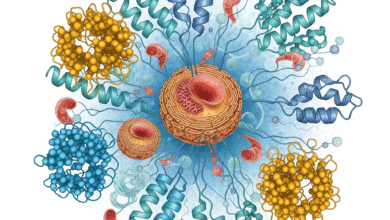The Benefits of Protein Supplements and When to Use Them

Protein supplements are popular with athletes, fitness fans, and the public. Protein supplements are a type of supplement that can benefit your body. There are different kinds to choose from, and they have lots of benefits. We’ll talk about these benefits and when it’s good to use them in this article.
What are protein supplements?
Protein is crucial for the body. It helps grow and fix tissues. It is made up of amino acids, which are the building blocks of protein. People can get protein from meat, fish, dairy, and beans. But some use protein supplements to make sure they get enough protein in their diet.
Protein supplements are powders or bars made of different types of protein. Protein shakes are made to be an easy and good way to get protein without eating too much.
Types of protein supplements
Protein supplements come in various types. Each type has pros and cons of its own. Some of the most common types of protein supplements include:
Whey protein
Whey protein is one of the most popular types of protein supplements. It is a complete protein that contains all of the essential amino acids your body needs. Whey protein is good for recovery after working out. It is easily absorbed and quickly digested by the body.
Casein protein
Casein protein is a kind of milk protein that is digested at a slower pace than whey protein. This makes it a good choice for a bedtime snack or for times when you need a slow-release protein source.
Soy protein
Soy protein is a complete protein that is derived from soybeans. It is a good choice for vegetarians and vegans, as it is a plant-based protein. Soy protein has also been shown to have heart-healthy benefits.
Pea protein
Pea protein is a plant-based protein that is made from yellow split peas. It is easily digested and has been shown to help build and maintain muscle mass.
Rice protein
Rice protein is another plant-based protein that is derived from brown rice. It is easy to digest and doesn’t usually cause allergies. This makes it a great option for people who are sensitive to certain foods.
Hemp protein
Hemp protein is a complete protein that is derived from the seeds of the hemp plant. It is also high in fiber and healthy fats.
Collagen protein
Collagen is a protein in animal skin, bones, and connective tissues. Studies have proven that it can better skin and relieve joint pain. This has made it a common option for senior citizens and athletes.
Egg protein
Egg protein is a complete protein that is derived from egg whites. It is easily digested and is a good choice for those with dairy or soy allergies.
Benefits of protein supplements
Protein supplements offer several benefits, including:
Muscle growth and repair
Protein is necessary for muscle growth and repair. When you exercise, your muscles are broken down, and protein is needed to rebuild them. Protein supplements can help muscles grow and repair. It’s especially helpful after a workout.
Weight loss
Protein supplements can aid weight loss by making you feel full and less hungry. This can lead to a decrease in overall calorie intake and promote weight loss.
Improved bone health
Protein is important for maintaining bone health. Protein supplements can help older adults have stronger bones and lower fracture risk. Studies support this finding.
Increased satiety and reduced appetite
Protein fills you up more than carbs or fats, so it can stop you from getting hungry and make you feel full. This can help with weight loss and weight management.
Lower blood pressure
Protein supplements, like whey protein, can reduce high blood pressure based on some studies.
| You May Also Like | Protein Supplements Role in Your Daily Intake for Weight Loss |
When to use protein supplements
Protein supplements can be beneficial for several groups of people, including: .
Athletic Performance and Recovery
Athletes can use protein supplements to build and fix muscles and recover after working out.
Vegetarian or vegan diets
Protein supplements can be useful for vegans and vegetarians to get enough protein in their diet.
Aging population
As we age, our bodies become less efficient at processing protein. Protein supplements can help older adults maintain muscle mass and bone density.
Medical conditions
Protein supplements can help those who can’t digest protein or need more for medical reasons.
Risks and precautions
Protein supplements are usually safe, but there are things to be careful about.
Allergic reactions
Some people may be allergic to certain types of protein, such as whey or soy. If you have a food allergy, be sure to read labels closely and select a protein supplement that is safe for you.
Kidney problems
Eating too much protein can damage kidneys, especially for those with kidney issues. If you’ve had kidney problems before, make sure to talk to your doctor before taking any protein supplement.
Digestive issues
If you take protein supplements, you might have digestion problems like bloating, gas, or diarrhea. This can be due to the type of protein used or the additives in the supplement.
Interactions with medications
Protein supplements can interact with certain medications, such as blood thinners or antibiotics. Before taking a protein supplement, discuss with your doctor if you are on any medications.
How to choose the right protein supplement
When choosing a protein supplement, there are several factors to consider, including: .
Personal goals
Your protein supplement should be chosen based on your personal goals. For example, if you are looking to build muscle, whey protein may be the best choice.
Quality and purity
It is important to choose a protein supplement that is high quality and pure. Look for supplements that are third-party tested for quality and purity.
Taste and texture
Protein supplements come in a variety of flavors and textures. Choose a flavor and texture that you enjoy and can easily incorporate into your diet.
Type of protein
Protein has various types, each with different advantages. They might be more suitable for specific people or purposes. Consider the type of protein, such as whey, casein, soy, or pea protein, when choosing a supplement.
Additives
Some protein supplements may contain additives such as sweeteners or artificial flavors. Think about what’s in the supplement and try to find one with fewer additives.
Conclusion:
Protein supplements have many advantages. They can help you build muscles, lose weight, and strengthen your bones. They can be beneficial for athletes, vegetarians, and older adults, among others. Choosing a good supplement is important. Watch out for any risks or interactions with medications. Consult with a healthcare provider or registered dietitian before starting a protein supplement.
FAQs:
Q1. What is the recommended amount of protein per day?
The amount of protein you should eat each day depends on your age, gender, and activity level. The usual advice is to consume 0.8 grams of protein for each kilogram you weigh.
Q2. Are protein supplements safe for pregnant women?
Pregnant women can take protein supplements, but they should talk to a doctor first.
Q3. Can protein supplements cause weight gain?
Protein supplements alone won’t make you gain weight. However, if you consume too many calories from any food, you can still gain weight.
Q4. Is it necessary to take protein supplements to build muscle?
No, it is not necessary to take protein supplements to build muscle. Eating enough protein from real foods can help build and fix muscles.
Q5. Can I take protein supplements if I have a dairy allergy?
Protein supplements without dairy are safe for people with dairy allergies. Examples include soy protein and pea protein.




